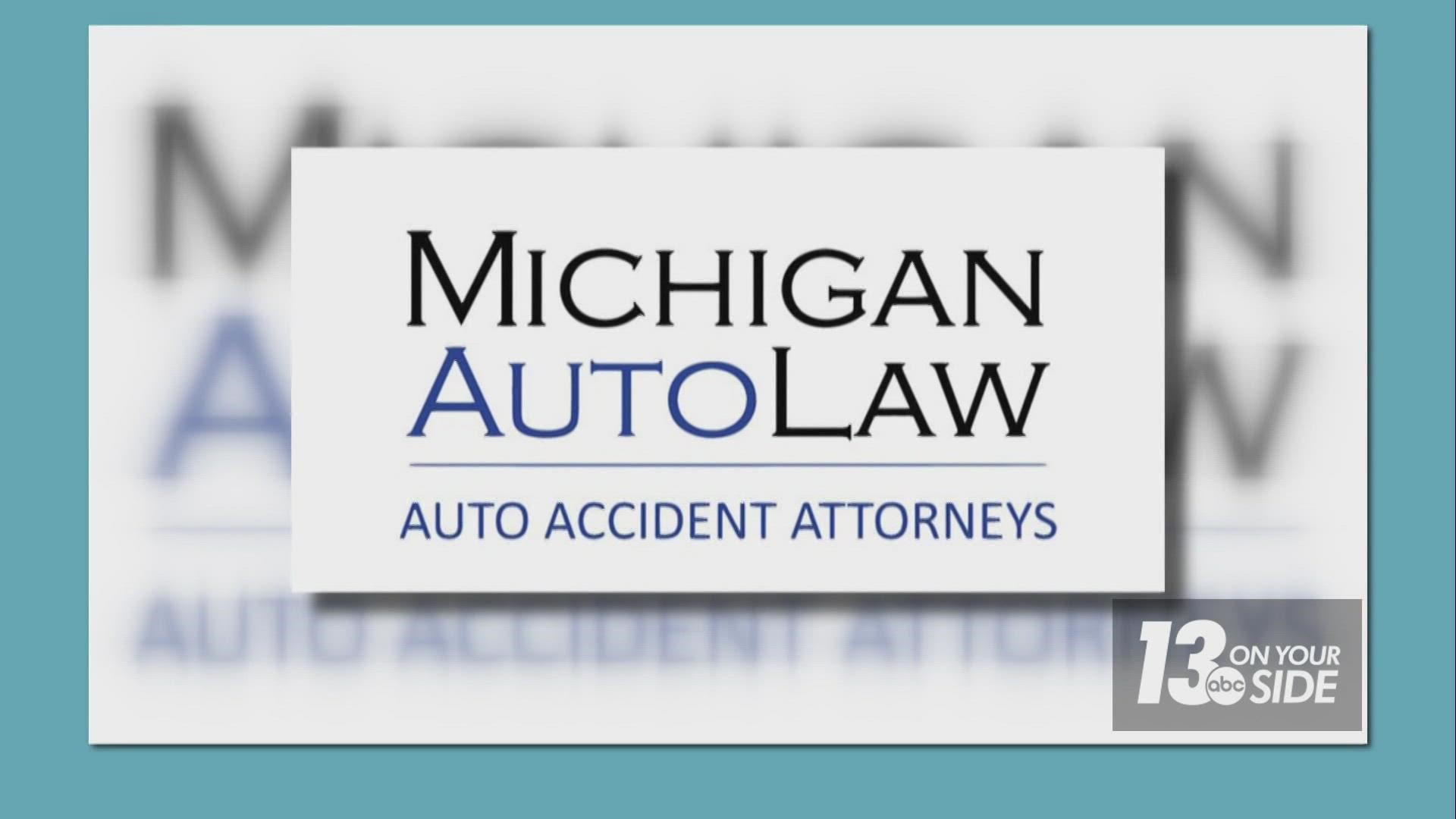MICHIGAN, USA — If you’re a Michigan resident driving on Michigan roadways, you have to maintain valid no-fault auto insurance coverage on your vehicle. How much coverage you get is a decision you have to make.
Attorney Brandon Hewitt joined us from Michigan Auto Law to help sort it all out. He said the coverage can range from the bare legal minimum which is PLPD, to the maximum which is full coverage.
Hewitt answered our questions about the differences between PLPD and full coverage.
What is PLPD car insurance?
PLPD stands for “personal liability and property damage” auto insurance coverage. It is generally considered to be the least amount of insurance coverage that a driver is required by law to carry on his or her own motor vehicle before driving it on a public road in the state where the driver lives.
What does PLPD insurance coverage include?
- Your medical bills if you are injured in a crash (up to the limit you chose for No-Fault medical)
- Your lost wages if you are injured in a crash (No-Fault wage loss benefits)
- Your liability for pain and suffering to others if you cause a crash (Liability coverage)
- Property damage to tangible property such as buildings or safely parked cars belonging to others
- Your liability for vehicle damage in an out-of-state car accident for which you are at-fault
How much PLPD insurance coverage is a driver legally required to have?
For No-Fault medical, drivers can choose coverage limits of $50,000+Medicaid, $250,000, $500,000 and unlimited. For liability coverage, the statute requires $250,000 – but allows drivers to choose a lower limit of $50,000. For property damage coverage for out-of-state car accidents, you must have a minimum of $10,000 in coverage.
What is Full Coverage?
Full coverage auto insurance covers everything that PLPD covers, PLUS it provides protection for damage to your vehicle and ensures you will receive all of the pain and suffering compensation you are entitled to if you are injured by an uninsured or underinsured driver. Unlike PLPD, the full array of coverage encompassed by Full Coverage is not required by law.
The portion of Full Coverage that extends beyond PLPD is optional coverage, meaning you have the option to purchase or not purchase. Only PLPD is required by law – it is the minimum amount of insurance coverage that the law requires Michigan drivers to purchase and maintain for their vehicles.
What does Full Coverage insurance include?
- It includes everything required for PLPD
- It pays for damage to your vehicle after a car crash (collision coverage)
- It pays for damage to your vehicle caused by a falling object, bad weather, fire, theft or hitting a deer (comprehensive)
- It helps ensure you receive the pain and suffering compensation you are entitled to if you were injured by an uninsured OR underinsured driver (“uninsured motorist” (UM), “underinsured motorist” (UIM))
- It helps you pay what you may owe in a mini tort claim if you caused an accident in Michigan that resulted in vehicle damage to a vehicle owned by someone else (limited property damage coverage)
What costs less?
There are no guarantees about what will cost less – costs may vary depending on insurers and your personal circumstances and driving history.
It is important to remember that purchasing PLPD is not necessarily saving you money – you are paying less in auto insurance premiums for considerably less in insurance coverage (which could prove very costly in the event that tragedy strikes and you are in a crash).
It is also important to remember that if you do not have the optional protections provided by Full Coverage that in the event there is a serious crash, you may have to pay out of pocket for your totaled car, severe vehicle damage from weather or a deer that leaves your vehicle undriveable, and up to $3,000 for vehicle damage to another person’s vehicle.
Without Full Coverage, you may also be unable to recover the pain and suffering compensation you are owed by an uninsured or underinsured driver.
For more information, or to contact an attorney, visit www.MichiganAutoLaw.com or call 833-411-MICH.
►Make it easy to keep up to date with more stories like this. Download the 13 ON YOUR SIDE app now.
Have a news tip? Email news@13onyourside.com, visit our Facebook page or Twitter. Subscribe to our YouTube channel.

